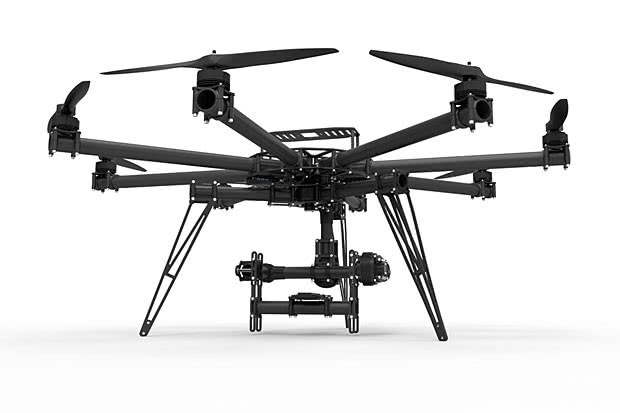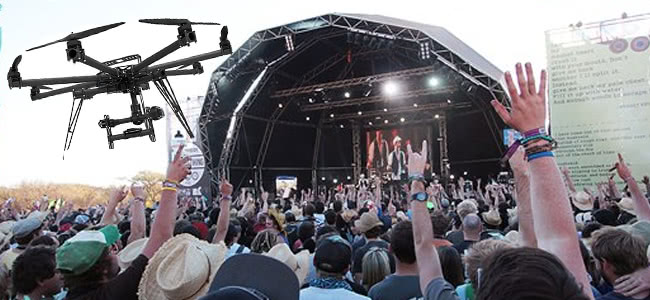Cold, readily available drinks at music festivals are nothing short of paradise. Alternately, the prospect of having to queue tirelessly for food and drink while absenting yourself from the music is infuriating.
So imagine a world where you never had to leave the stage – at the click of the button a frosty beer would be headed your way, delivered to your exact location via miniature aircraft. Enticing isn’t it?
Well, South African music festival OppiKoppi has offered a glimpse into the future of festival technology, and while booze and military gear are rarely an endorsed unity, the festival is this year making a holy matrimony of the two by employing army-developed drones to deliver drinks to punters. Yep, we’re talking beer drones (take a look at the explanatory video in the header).
As Medical Daily reports, the OppiKoppi Festival – this year featuring local acts Jeremy Loops, The Black Cat Bones, and The Narrow – will see the beer drones deliver alcoholic beverages – securely strapped into a parachute – to festival goers via GPS coordinates programmed into the small remote-controlled helicopter, its flight powered by eight propelling rotors.
Alcohol vendors and stores selling liquor at the festival will receive beverage orders lodged from customers’ phones and apps, then attach beer cans to parachutes and load them into the device.
According to the drones’ developers, the model will be updated and eventually synchronised with a GPS gridded map of the OppiKoppi festival venue, making the use of the remote control obsolete.
Assuming the parachute unfolds correctly and the beverage lands safely, punters will have chilled drinks delivered to them throughout the three-day festival, held in the Limpopo Province, a region close to the border of Botswana, Zimbabwe and Mozambique.
However, as Digital Trends points out, questions have been raised about the beer drones and the welfare of festival-goers if the parachutes do not open properly, or, having consumed one too many airdropped alcho-pops, whether they’d be capable of catching or locating the dropped package. Beyond this, the issue has been raised as to whether this is a sensible use of highly advanced technology, particularly given the sparseness and lack of resources in much of the African continent.
The festival engaging the technology began back in 1994 and hosted exclusively local acts to a small, generally local crowd. Oppikoppi is a colloquial abbreviation of the Afrikaans phrase “op die koppie”, which literally means “on the hill”, and according to the official website, the camping area is at the foot of a hill, on top of which is a bar and the Sipho Gumede stage.
Almost 20 years after the inaugural Oppikoppi, the festival now runs for three days in August, boasts over 100 artists and has over 15,000 people attending. In 2012, Oppikoppi organisers announced they would be running another festival in Cape Town, called One Night In Cape Town.
Other notable uses of technology for the benefit of musical festival punters include the highly publicised appearance of deceased rap icon Tupac Shakur in holographic form at Coachella Festival 2012 during Snoop Dogg and Dr Dre’s set. Using similar technology, Feist recently performed in three concerts at Canadian cities simultaneously. As for developments in festival convenience, American and UK events are beginning to use chipped wristbands and passes, with integrated maps and tracking, instantaneous social media links and overall, increasingly smoother experiences at music and arts festivals.

































